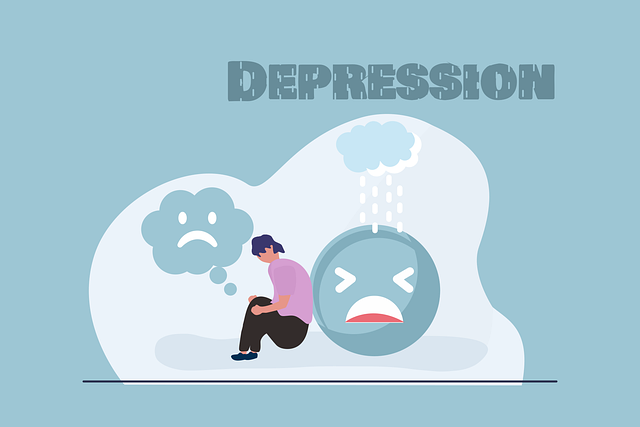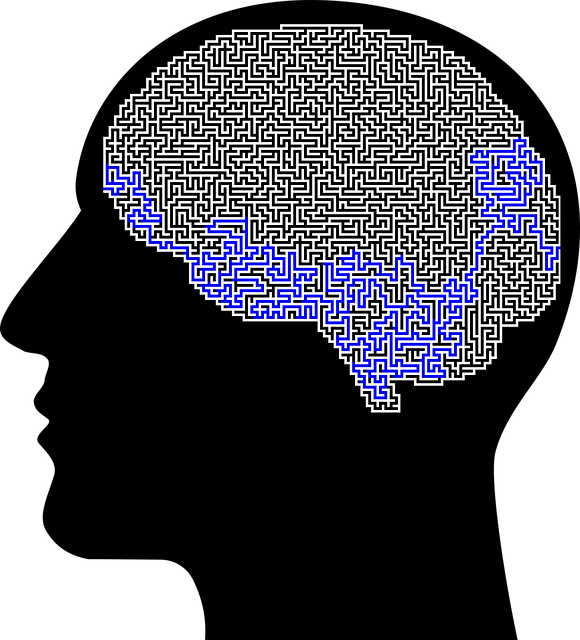Denver's young adults face distinct challenges, including economic instability, social isolation, and limited access to quality mental health resources, leading to elevated depression rates. Effective Denver Young Adults Therapy community outreach programs must adopt evidence-based practices like Mind Over Matter and emotional intelligence building to empower individuals, promote resilience, and prevent depression. These programs bridge care gaps, enhance awareness, foster trust, and provide supportive environments for early intervention and long-term mental well-being. Key strategies include cultural sensitivity, innovative approaches tailored to adolescents' unique needs, leveraging technology and peer support networks, and building strong partnerships with local organizations and schools. Comprehensive evaluation using both qualitative and quantitative metrics, focusing on KPIs like reduced anxiety, depression symptoms, and increased life satisfaction, ensures the success of these initiatives.
Denver’s young adult population faces unique challenges, demanding innovative mental health support strategies. This article explores community outreach programs as a game-changer in addressing these needs. We delve into understanding the target demographic, highlighting their specific requirements and barriers to access. By examining the benefits of such initiatives, we emphasize their potential to revolutionize Denver Young Adults Therapy. Subsequently, we provide practical guidance on designing engaging therapy programs, building strategic partnerships, and evaluating the impact of outreach efforts.
- Understanding Denver's Young Adult Population: Needs and Challenges
- Benefits of Community Outreach Programs for Mental Health Support
- Designing Effective Therapy Initiatives: Engagement Strategies for Youth
- Building Partnerships: Collaborating with Local Organizations and Schools
- Measuring Success: Evaluation Metrics for Outreach Program Impact
Understanding Denver's Young Adult Population: Needs and Challenges

Denver’s young adult population presents a diverse range of needs and challenges. With a significant portion facing economic instability, many struggle to afford basic necessities, impacting their ability to access quality education and mental health resources. This financial strain often leads to stress and anxiety, contributing to rising rates of depression among this demographic. Social isolation is another critical issue, as young adults may find themselves disconnected from community support systems due to factors like relocating for work or higher education.
Community outreach programs must consider these challenges when designing initiatives aimed at supporting Denver’s young adults. Incorporating evidence-based practices such as Mind Over Matter principles and promoting emotional intelligence can empower individuals to navigate these difficulties. By focusing on early intervention and depression prevention, these programs can foster resilience and improve the overall well-being of Denver’s young adult population.
Benefits of Community Outreach Programs for Mental Health Support

Community outreach programs play a pivotal role in enhancing mental health support, especially for underserved populations like Denver’s young adults. By bringing therapy and counseling services directly to communities, these initiatives bridge the gap between care and those who need it most. The benefits are multifaceted; they not only increase public awareness campaigns development related to mental health but also foster a sense of belonging and trust, encouraging individuals to seek help without stigma.
Cultural sensitivity in mental healthcare practice is another key advantage. Outreach programs can be tailored to respect and incorporate cultural nuances, ensuring that therapy aligns with community values and beliefs. This approach builds empathy building strategies between therapists and clients, leading to more effective treatment and improved outcomes. For young adults in Denver, these initiatives offer a supportive environment, promoting early intervention and long-term mental well-being.
Designing Effective Therapy Initiatives: Engagement Strategies for Youth

Community outreach programs aimed at Denver young adults therapy must be meticulously designed to foster meaningful engagement. This involves understanding the unique needs and challenges faced by youth in urban settings, such as burnout prevention strategies for healthcare providers that are tailored to their age group. Engaging young adults requires innovative approaches that go beyond traditional therapy models. Incorporating elements of Mental Health Policy Analysis and Advocacy can empower adolescents by teaching them about their rights and resources, encouraging self-advocacy, and promoting community involvement in mental health initiatives.
Effective initiatives should leverage technology, social media, and peer support networks to create accessible and appealing programs. By combining evidence-based therapeutic techniques with contemporary engagement strategies, outreach programs can combat the burnout often experienced by healthcare providers while providing impactful support for Denver’s young adults. This holistic approach ensures that therapy initiatives resonate with youth, fostering a sense of belonging and encouraging proactive mental health management.
Building Partnerships: Collaborating with Local Organizations and Schools

Building strong partnerships is a cornerstone of successful community outreach programs, especially when focusing on mental health initiatives like Denver Young Adults Therapy. Collaborating with local organizations and schools creates a network of support that amplifies the impact of any program. For instance, partnering with schools can facilitate the integration of social skills training and communication strategies into existing curricula, benefiting students’ overall well-being.
These partnerships also enable the sharing of resources, expertise, and best practices related to mental health awareness and Healthcare Provider Cultural Competency Training. By pooling efforts, communities can design programs that cater to diverse cultural needs, ensuring inclusivity and accessibility for all young adults, regardless of their background or identity.
Measuring Success: Evaluation Metrics for Outreach Program Impact

Evaluating the success of community outreach programs is a crucial step in understanding their impact and identifying areas for improvement. For initiatives like Denver Young Adults Therapy, measurement goes beyond simple attendance or participation rates. A comprehensive evaluation should include both qualitative and quantitative metrics to assess the overall effectiveness of the program.
Key performance indicators (KPIs) could include tracking improvements in mental health outcomes among participants, such as reduced symptoms of anxiety and depression, enhanced coping mechanisms, and increased life satisfaction. Additionally, measuring changes in attitudes and behaviors related to stress management workshops and confidence-boosting activities can provide valuable insights. For instance, a series of surveys before and after the Mental Wellness Podcast Series production might reveal increased knowledge about mental health resources and improved self-care practices among Denver Young Adults Therapy community members.
Implementing community outreach programs focused on Denver’s young adult population offers significant benefits, addressing mental health challenges through tailored therapy initiatives. By collaborating with local organizations and schools, these programs can effectively engage youth, fostering resilience and positive outcomes. Measuring success through evaluation metrics ensures the impact of Denver Young Adults Therapy initiatives, ultimately revolutionizing support for this vital demographic.














